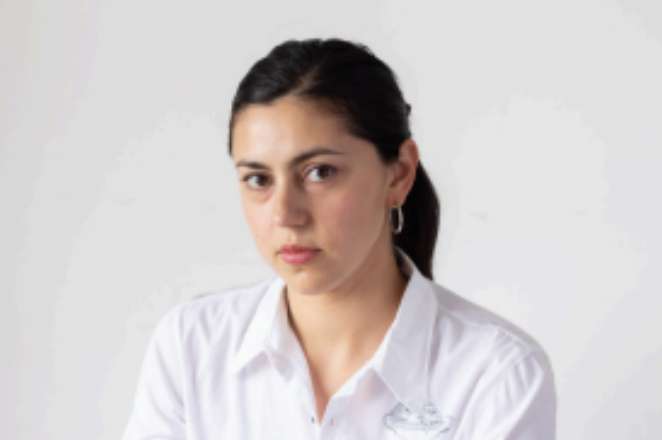Danae Cisneros is an actress, performer, director and playwright from Argentina. In 2022, she received with her colleague Julieta Koop the award “100 Artists” from the Swiss Artlink Foundation, in recognition of their work as artists in Argentina.
Residency project:
The play "Future ashes future" is set in a dystopian future where fire has triumphed over human insight: in 2050, Argentina has been transformed into a desert of ashes. National parks and cities alike have been burnt to the ground. Two survivors, X and Y, attempt to save themselves by migrating from Buenos Aires to Isla Martín García Island, the last vestige of local life. On their way, they find something that becomes a treasure: the egg of a condor lost after the migration of the species.
They feel an urgent need to save it, hoping that it will carry their messages to other lands, to other potential survivors. There is no internet, no telephones, the usual means of communication no longer exist. To survive, they have to question their language. They have to learn to name again, because technology has impoverished language. Our starting point is a hypothesis that we are already beginning to observe in our daily lives: after decades of virtual communication, of sending messages digitally, our way of expressing ourselves has been transformed; the signifiers and the signifieds have changed. We also know that language is mutable diachronically, through the passage of time and the transformation of the speaking population. So they will have to rethink the way they ask for help, and will have to retrace the link between humans and animals, because they cannot survive on their own. They are the condor's egg and the world.
From a formal point of view, the work will be an experiment with language, which will change over the course of the piece. At the beginning, X and Y speak with a lexicon that we imagine has been modified by the 21st century and new technologies.
The project will seek to imagine this possible dialect and, on the basis of this hypothesis, will construct the poetics of the work. Their words will be similar to those we know, but not identical; their sentences will be syntactically a synthesis; their exchange will be a hybrid between past and future. Saving their lives will lead them to rediscover lost, outdated words. On their journey, they will find vestiges of forgotten peoples, cultures and practices, crushed by the advance of technology and the logic of maximum capitalist profit.
They will learn to write and name what they see, what they don't know. They will create a new world from the ashes.

